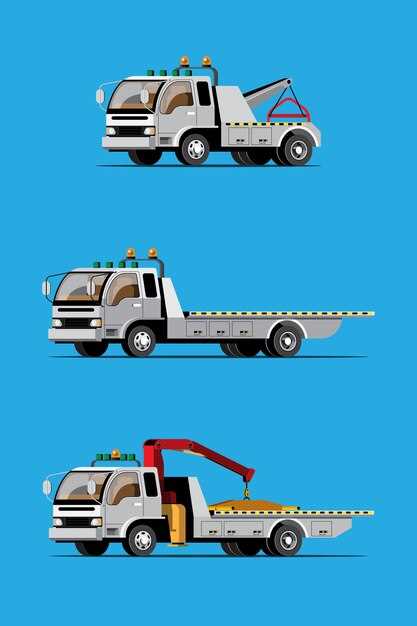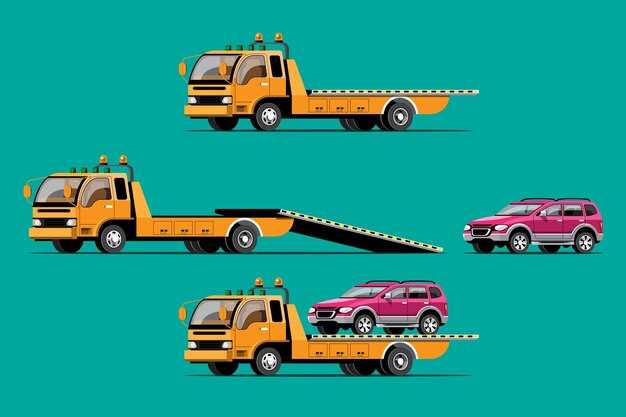
When it comes to transporting vehicles or heavy equipment, choosing the right trailer is crucial for efficiency and safety. Among the various options available in the market, tilt trailers and ramp trailers are two of the most popular choices. Each type of trailer offers distinct advantages and disadvantages that cater to different needs and preferences.
Tilt trailers feature a unique design that allows the bed to tilt down, facilitating a seamless loading and unloading process. This design significantly reduces the need for heavy lifting, making them ideal for individuals who may struggle with manual loading. Moreover, their low-angle loading capability can accommodate a wider variety of vehicles, including golf carts, ATVs, and even some larger trucks.
On the other hand, ramp trailers are equipped with fixed ramps that provide a more traditional loading experience. They are favored for their sturdiness and stability, especially when loading heavy machinery or oversized cargo. However, the loading angle can be steeper than that of tilt trailers, which may restrict the types of vehicles or equipment that can be loaded without risk of damage.
In this article, we will dive deeper into the key features of both tilt and ramp trailers, exploring their suitability for various applications as well as their pros and cons. By the end, you will have a clearer understanding of which trailer option best meets your specific needs.
Tilt Trailers vs Ramp Trailers: Which One to Choose
Choosing between tilt trailers and ramp trailers depends on several factors including the type of load, ease of use, and personal preference. Each type has unique advantages that cater to different needs.
-
Tilt Trailers:
- Design: Tilt trailers feature a sloped platform that allows the trailer bed to angle down, making it easier to load vehicles or equipment.
- Ease of Loading: The tilting mechanism requires less physical effort to load, as you can simply drive the vehicle onto the trailer without needing to maneuver a ramp.
- Versatility: Ideal for low-clearance vehicles, small cars, or equipment that may have difficulty accessing a steep ramp.
- Weight Distribution: Offers better weight distribution since the load is centered over the axle when tilted, enhancing stability during transport.
-
Ramp Trailers:
- Design: Ramp trailers come with a built-in ramp that extends out, allowing a straightforward way to load and unload.
- Increased Capacity: Often have higher weight limits, making them better suited for larger equipment or multiple vehicles.
- Loading Speed: Depending on the design, loading can be faster when using ramps, especially for experienced users.
- Accessibility: Ramp trailers provide a more traditional method of loading that some users may find more familiar and comfortable.
In conclusion, the choice between tilt trailers and ramp trailers should be based on your specific needs. If you prioritize ease of loading for lower-profile vehicles, tilt trailers may be the better option. Conversely, if you require a higher weight capacity and prefer a conventional loading method, ramp trailers might be the way to go. Assess your loading requirements and vehicle types to make an informed decision.
Advantages of Tilt Trailers for Easy Loading

Tilt trailers offer several advantages when it comes to loading and unloading vehicles or equipment. One of the primary benefits is the seamless loading process. Unlike traditional ramp trailers, which require a steep incline for loading, tilt trailers utilize a tilting mechanism that lowers the trailer bed to the ground level. This feature substantially reduces the angle of ascent, making it easier for vehicles with low ground clearance to be loaded without the risk of damage.
Additionally, tilt trailers often have a single point of contact for the loading mechanism, which enhances stability during the loading process. This design minimizes the risk of tipping or sliding, providing a secure environment for both the operator and the vehicle being loaded. In contrast, ramp trailers can sometimes create awkward angles that may lead to complications if the vehicle slips or rolls slightly during the loading phase.
Furthermore, tilt trailers typically require less effort to operate. The tilting mechanism is often simpler and requires minimal physical strength, making it accessible for users of all ages. This ease of operation is a significant advantage for those who may not have the physical capacity to handle heavy ramps or navigate steep inclines comfortably.
Another notable advantage of tilt trailers is their versatility. Once the trailer is tilted down, it can also serve as a flat surface for loading oversized items or equipment that may not fit easily on a traditional ramp. This flexibility allows users to maximize the trailer’s potential, accommodating various loading needs efficiently.
In summary, tilt trailers provide a streamlined loading experience, enhanced safety, and versatile use cases, making them an excellent choice for anyone looking for ease and efficiency in transporting vehicles or equipment.
Benefits of Ramp Trailers for Versatile Uses

Ramp trailers offer a wide range of benefits that make them suitable for various applications, distinguishing them from tilt trailers. One of the primary advantages of ramp trailers is their accessibility. The built-in ramps provide a gentle incline, allowing for easier loading and unloading of various vehicles and equipment, including cars, motorcycles, ATVs, and lawn equipment. This feature is particularly beneficial for individuals and businesses that need to transport multiple types of loads.
Another significant benefit is the stability they offer during loading. The ramp design allows for safer and more controlled access, reducing the risk of accidents that can occur with steeper or less stable loading options found in tilt trailers. This stability is crucial when dealing with heavier equipment or vehicles that require a more secure loading process.
Ramp trailers also provide flexibility in terms of weight capacity. They are often designed to accommodate a wide variety of payloads, making them an excellent choice for contractors, landscapers, and recreational users. This versatility means that users can switch between transporting different items without needing to invest in multiple specialized trailers.
Moreover, ramp trailers can be easily customized with additional features such as side rails, toolboxes, or higher weight capacities, further enhancing their usability. This adaptability allows users to tailor them to specific needs, whether for personal use or within commercial settings.
In addition to their functionality, ramp trailers are usually constructed with robust materials that ensure durability and longevity. This strength makes them a worthwhile investment for those looking for reliable and practical solutions on the road, ensuring they can handle regular use without significant wear or damage.
In summary, ramp trailers provide numerous advantages, including ease of access, safety during loading, versatility in payload capacity, customization options, and durability. These features make them a highly effective choice for anyone looking to transport various items efficiently and safely.
Choosing the Right Trailer Based on Your Needs
When selecting a trailer, understanding the specific uses and features of tilt trailers and ramp trailers is crucial. Each type offers distinct advantages that cater to different preferences and requirements. Here’s a breakdown to help you make an informed choice:
| Feature | Tilt Trailers | Ramp Trailers |
|---|---|---|
| Loading Mechanism | Utilizes a tilting platform for easy loading and unloading. | Equipped with ramps that can be extended or unfolded for loading. |
| Weight Distribution | Tilting allows for better distribution of weight, making it stable even with heavy loads. | Requires careful positioning of the load on the ramps to ensure balance. |
| Type of Cargo | Ideal for vehicles with low ground clearance and machinery. | Great for items that can be driven on and off easily, like ATVs and motorcycles. |
| Ease of Use | More user-friendly for solo operators due to its simple loading process. | May require additional help to maneuver heavy items onto the ramps. |
| Storage Space | Generally takes up less space when parking due to its design. | Can require more room for ramp deployment and storage. |
Assess your specific needs based on the type of cargo you plan to transport, your loading preferences, and the conditions in which you will operate the trailer. Both tilt and ramp trailers have their merits, but understanding their features will lead you to the right choice for your tasks.





